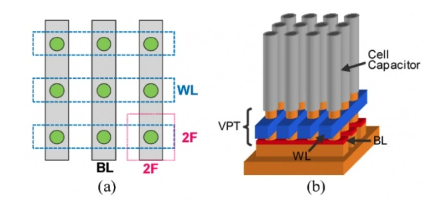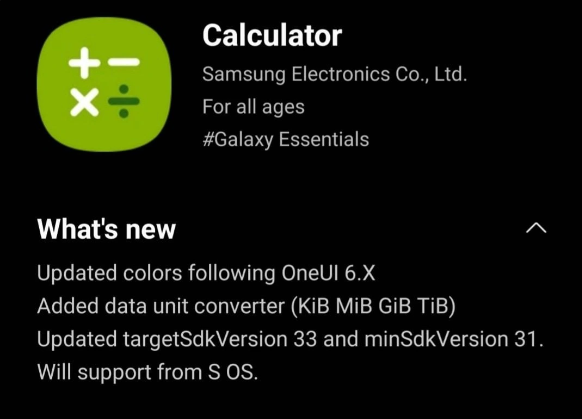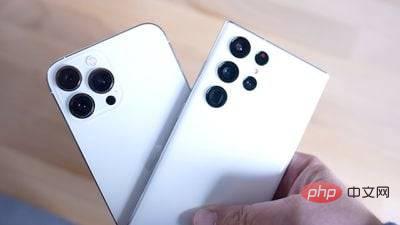php editor Zimo introduces you to Samsung 500TU disk startup. Samsung 500tu disk is a high-performance portable storage device with fast read and write speeds and stable performance. Not only can it be used as a regular storage device, it can also be used to boot the computer system. By installing the system on the Samsung 500tu disk, users can quickly start the computer and enjoy a smoother operating experience. Whether used for work or entertainment, Samsung 500tu disk boot can help you improve efficiency and enjoy a better user experience.

Complete list of U disk startup shortcut keys: (Recommended)
The current mainstream computers and motherboards basically support it, and it is recommended for everyone to use. It is more convenient and does not require setting up the BIOS.
1. Motherboard type (press the corresponding shortcut key for the motherboard installed on your computer):
ASUS motherboard F8, Gigabyte motherboard F12, MSI motherboard F11, Biostar motherboard F9, Meijie motherboard F11 or ESC Colorful motherboard ESC Or F11 ASRock motherboard F11 Spartak motherboard ESC Onda motherboard F11 Dual-sensitivity motherboard ESC ASL motherboard F10 Elite motherboard ESC or F11 Guanmeng motherboard F11 or F12 Foxconn motherboard ESC or F12 Topstar motherboard F11 or F12 Maxxuan motherboard ESC Yeston motherboard F8 Jie Wave motherboard ESC Intel motherboard F12 Jiewei motherboard ESC or F8 Zhiming motherboard F12 Panying motherboard ESC Panzheng motherboard ESC Guanming motherboard F92. Notebook category
Lenovo notebook F12 or FN 12 Lenovo ThinkPad F12 HP notebook F9 ASUS notebook ESC Dell notebook F12 Acer notebook F12 Shenzhou notebook F12 Founder notebook F12 Toshiba notebook F12 Tsinghua Tongfang notebook F12 Samsung notebook F12 Haier notebook F12 Gateway notebook F12 MSI notebook F12 Gigabyte notebook F12 IBM notebook F12 BenQ notebook F12 Sony notebook F12 Apple notebook Press the option key Or ALT key 3. Desktop computers: Lenovo Desktop F12 HP Desktop F12 Shenzhou Desktop F12 Asus Desktop F8 Dell Desktop ESC Acer Desktop F12 Founder Desktop F12 Tsinghua Tongfang Desktop F12 Haier Desktop F12 BenQ Desktop F124. All-in-one computer category
For all-in-one computers, please try laptop shortcut keys or desktop shortcut keys;
The editor will continue to update the list of shortcut keys. In addition to the keys listed above (such as F11, F12, F9, ESC, etc.), there are some other keys you can try. However, we can see that there aren't actually many shortcut keys available.
BIOS setting U disk boot method: (common to all computers, suitable for older models without shortcut keys)
Set U disk boot, different BIOS settings U disk boot method They are all different. The following are three common methods:
1. Phoenix – AwardBIOS (computer after 2010):
2. Old Award BIOS (computer motherboard after 2009):
3. A BIOS for computer motherboards in 2002:
1. Phoenix – AwardBIOS (computer setup method after 2010):

Picture 1 above: Press and hold the Del key when booting to enter the computer's BIOS setup interface, and select Advanced BIOS Features.

Picture 2 above: After entering the Advanced BIOS Settings (Advanced BIOS Features) interface, you must first select the hard disk boot priority: Hard Disk Boot Priority.

Figure 3 above: After entering the Hard Disk Boot Priority interface, you need to use the plus and minus symbols ( , -) on the small keyboard to select the mobile device. The U disk selection is at the top. Then, press and hold the ESC key to exit, and you will return to the setting interface in Figure 2.

Picture 4 above: After completing the previous step, select the First Boot Device: This version of BIOS does not have "USB-HDD" or "USB-ZIP" for U disks. Similar options, selecting "Removable" for mobile devices cannot start normally. However, select "Hard Disk" to start the computer.
2. Old Award BIOS (2009 computer motherboard setting method):

Figure 1-1 above: Press and hold the Del key when turning on the computer to enter the BIOS setting interface of the computer. Then select Advanced BIOS settings: Advanced BIOS Features.

Figure 2-1 above: In the Advanced BIOS Settings (Advanced BIOS Features) interface, first select the hard disk boot priority: Hard Disk Boot Priority.

Figure 3-1 above: After entering the Hard Disk Boot Priority interface. You need to use the plus and minus symbols ( , -) on the small keyboard to select the mobile device, and select the USB flash drive at the top. After completing the previous steps, press and hold the ESC key to exit, and you will return to the setting interface in Figure 2-1.

Figure 4-1 above: In the First Boot Device interface, there are related options such as USB-ZIP and USB-HDD of the U disk. We can select "Hard Disk" , or you can select an option like "USB-HDD" to start the computer.
3. A BIOS setting method for a 2002 computer motherboard:

Figure 1-2 above Select the U disk boot item in the Boot menu interface settings

Figure 2-2 above: Boot Device Priority Select the U disk in the first boot device (1st Boot Device).
If the U disk is not used as the first boot device in the hard disk drive "Hard Disk Drives" in Figure 1-2, then the U disk will not exist and be displayed here, as shown in Figure 2-2 above. Show. However, we can select the mobile device "Removable Dev." as the first boot device;

Figure 3-2 above enters the hard drive "Hard Disk Drives" interface and needs to select the U disk as the first boot device Start the device "1st Drive". If the U disk has been selected as the first boot device in "Hard Disk Drives" before, as shown in Figure 3-2, then the U disk will be displayed in this interface, and we can select the U disk as the first boot device , as shown in Figure 4-2.

Figure 4-2 above: When we previously selected the U disk as the first boot device "1st Drive" in the hard disk drive "Hard Disk Drives" in Figure 3, we need to start the priority device Select (Boot Device Priority), then the U disk will be displayed, and then we can give priority to the U disk as the first boot device (1st Boot Device).
How to set up U disk boot? As the first step to install the system on a USB flash drive, the above article is what friends who install the system by themselves need to master. Of course, different computers may have some special situations. Later, the editor of Win7 System Home will explain it, or leave a message below. , the editor will provide methods for everyone.
The above is the detailed content of Samsung 500tu disk boot. For more information, please follow other related articles on the PHP Chinese website!
 三星组建专业团队致力于开发4F² DRAM存储单元结构技术May 27, 2023 pm 09:56 PM
三星组建专业团队致力于开发4F² DRAM存储单元结构技术May 27, 2023 pm 09:56 PM5月26日消息,据韩国媒体TheElec报道,三星公司近日成立了一支专业团队,致力于开发一种名为4F²DRAM存储单元结构的创新技术。这项技术可以在不改变工艺节点的前提下,将芯片面积最高减少30%。过去的十年里,DRAM行业曾尝试商业化4FSquare单元结构技术,但未能取得成功。然而,三星此次组建的专业团队力求克服之前的难题,推动4F²结构的研发。据小编了解,4F²DRAM存储单元结构的设计基于晶体管形成的源极(S)、栅极(G)和漏极(D)整套系统。在漏极(D)的上方安装了一个用于存储电荷的电
 比较:Apple Studio Display vs Samsung Smart Monitor M8May 11, 2023 pm 10:46 PM
比较:Apple Studio Display vs Samsung Smart Monitor M8May 11, 2023 pm 10:46 PM三星智能显示器M8与AppleStudio显示器:设计和尺寸自推出以来,AppleStudioDisplay就被比作iMac,由相对简单的L形支架上的相对薄的面板组成。这是一种众所周知且深受喜爱的美学,三星似乎借用了它的展示。三星SmartMonitorM8采用了与外观非常相似的支架上的薄屏幕的相同想法。一些次要元素有所不同,例如左下角的小部分有点突出,三星的下巴很薄,但它们在基本设计方面似乎很接近。三星似乎从24英寸iMac中获得了很多灵感。苹果的显示器比三星的要小
 三星计算器应用程序更新:支持Android 14和One UI 6.xJun 03, 2023 pm 05:58 PM
三星计算器应用程序更新:支持Android 14和One UI 6.xJun 03, 2023 pm 05:58 PM6月1日消息,三星近日开始更新部分应用程序,以支持即将发布的OneUI6界面。最新的更新已经针对预装在所有三星Galaxy手机和平板电脑上的计算器应用程序进行,尽管目前尚未广泛推广。这次更新为计算器应用程序增加了对Android14和OneUI6.x的支持,同时还加入了数据单位转换功能,例如兆字节和千字节,包括KiB、MiB、GiB、TiB等。虽然该转换功能已经存在一段时间,但它的加入表明三星正在逐步准备将最新的软件功能引入到其设备中。三星过去已经在发布新版Android和OneUI之前更新应用
 三星s10是什么处理器Dec 01, 2022 pm 03:26 PM
三星s10是什么处理器Dec 01, 2022 pm 03:26 PM三星s10搭载了高通骁龙855处理器,使用台积电7nm工艺,CPU采用八核Kryo 485架构,GPU使用的是Adreno 640,内存速度为2133MHz;支持GPS、GLONASS、北斗、Galileo、QZSS,SBAS和双频定位。
 三星手机是什么系统Nov 16, 2022 pm 05:22 PM
三星手机是什么系统Nov 16, 2022 pm 05:22 PM三星手机是安卓系统,只不过不是原生的安卓系统,而是原生安卓系统经过定制之后的系统,例如OneUI。OneUI是在2018年三星开发者大会上推出的全新基于安卓系统深度定制的用户界面,是三星和google合作进行研发的;可以同时运行在折叠屏产品上和非折叠屏产品上,通过交互的改进让两种不同形态的产品都有相近的操作体验。
 三星即将发布Galaxy Z Fold 5和Galaxy Z Flip 5,加强防水和防尘能力Jun 07, 2023 pm 05:17 PM
三星即将发布Galaxy Z Fold 5和Galaxy Z Flip 5,加强防水和防尘能力Jun 07, 2023 pm 05:17 PM6月7日消息,据消息源@chunvn8888透露,三星计划推出全新的GalaxyZFold5和GalaxyZFlip5两款可折叠智能手机,这两款手机将采用更高的防护标准,不仅具备防水功能,还将增加防尘能力。三星的GalaxyZFold和GalaxyZFlip系列是全球首批支持防水的可折叠手机,它们目前的防水等级为IPX8。这一标准意味着这两个系列的手机在水下1.5米的深度下可以安全使用,而且可以在最长30分钟的时间内保持防水状态。根据@chunvn8888透露的消息,GalaxyZFold5和G
 三星Galaxy S21系列手机出现屏幕问题,用户反映粉红色长线困扰Jun 14, 2023 pm 03:05 PM
三星Galaxy S21系列手机出现屏幕问题,用户反映粉红色长线困扰Jun 14, 2023 pm 03:05 PM06月13日消息,据小编了解,近期有关三星GalaxyS21系列手机屏幕出现粉红色长线问题的报道引起了广泛关注。据称,在安装5月更新之后,至少有三名用户在三星社区上报告了这一问题。值得一提的是,此前三星GalaxyS20系列也曾遇到过类似的问题。据报道,用户反映在安装最新更新后,屏幕出现了硬件问题,而对于已超出保修期的手机,用户则需要额外支付费用。有一位遇到上述问题的用户反馈称,三星要求其支付380美元(约合2717元人民币)的维修费用。三星GalaxyS21系列是三星公司的旗舰智能手机系列之一
 相机比较:三星 Galaxy S22 Ultra 与苹果 iPhone 13 Pro MaxApr 16, 2023 pm 04:01 PM
相机比较:三星 Galaxy S22 Ultra 与苹果 iPhone 13 Pro MaxApr 16, 2023 pm 04:01 PM三星在2月推出了其最新的高端旗舰智能手机GalaxyS22Ultra。我们挑选了一款新的三星设备,并认为我们会将其与Apple的顶级智能手机iPhone13ProMax进行比较,以了解这两款高端手机在相机方面的比较质量。GalaxyS22Ultra今年一共配备了四颗摄像头,包括108像素广角摄像头、12像素超广角摄像头、10像素10倍光学变焦远摄摄像头和10像素摄像头3倍光学变焦。相比之下,iPhone13ProMax拥有一个12兆像素的广角镜头、一个12兆像


Hot AI Tools

Undresser.AI Undress
AI-powered app for creating realistic nude photos

AI Clothes Remover
Online AI tool for removing clothes from photos.

Undress AI Tool
Undress images for free

Clothoff.io
AI clothes remover

AI Hentai Generator
Generate AI Hentai for free.

Hot Article

Hot Tools

VSCode Windows 64-bit Download
A free and powerful IDE editor launched by Microsoft

MantisBT
Mantis is an easy-to-deploy web-based defect tracking tool designed to aid in product defect tracking. It requires PHP, MySQL and a web server. Check out our demo and hosting services.

mPDF
mPDF is a PHP library that can generate PDF files from UTF-8 encoded HTML. The original author, Ian Back, wrote mPDF to output PDF files "on the fly" from his website and handle different languages. It is slower than original scripts like HTML2FPDF and produces larger files when using Unicode fonts, but supports CSS styles etc. and has a lot of enhancements. Supports almost all languages, including RTL (Arabic and Hebrew) and CJK (Chinese, Japanese and Korean). Supports nested block-level elements (such as P, DIV),

Dreamweaver CS6
Visual web development tools

SublimeText3 Mac version
God-level code editing software (SublimeText3)





